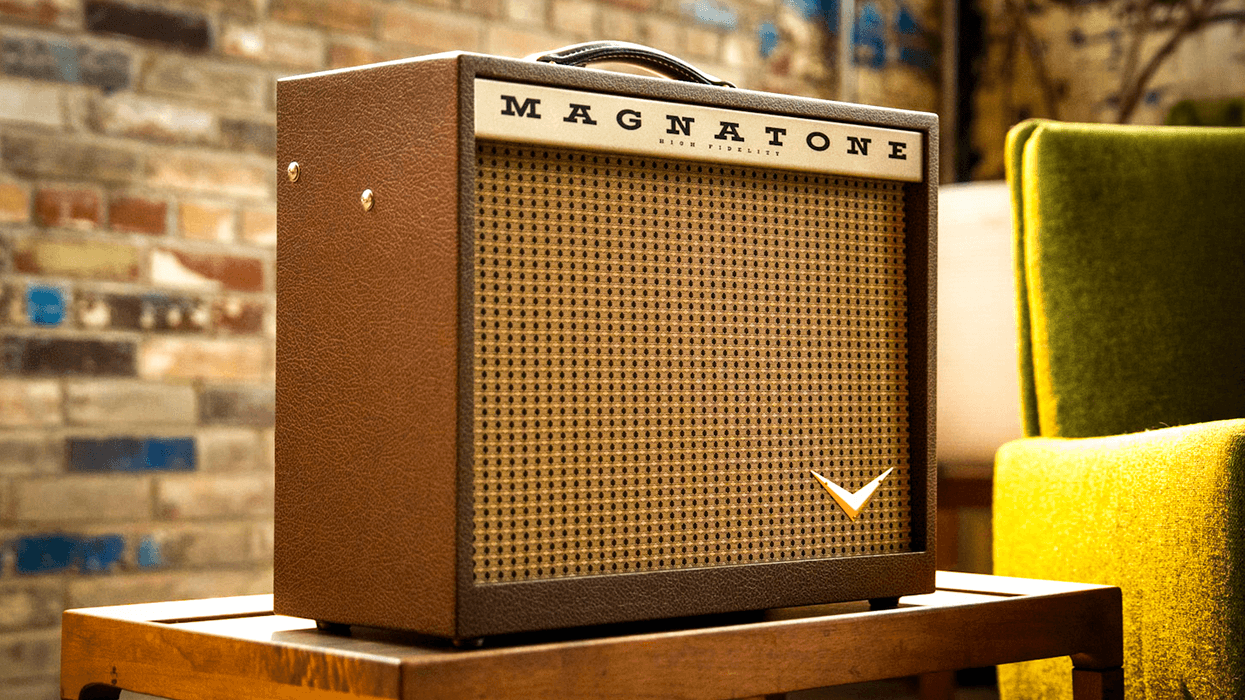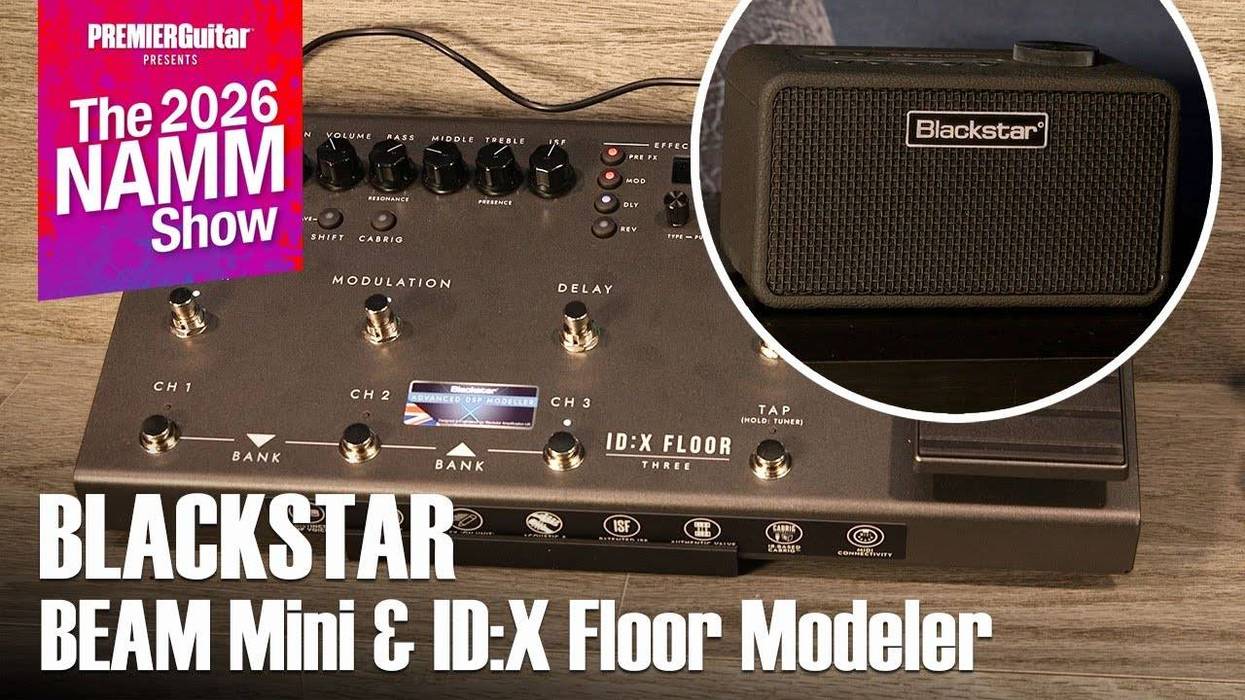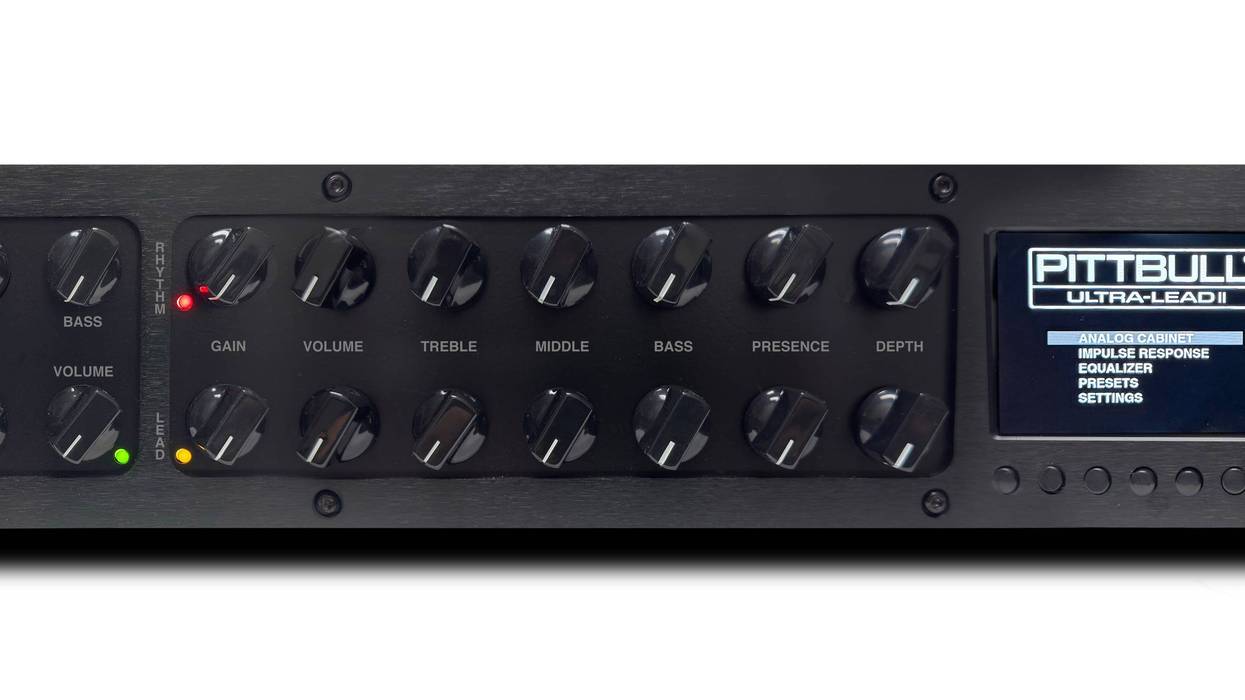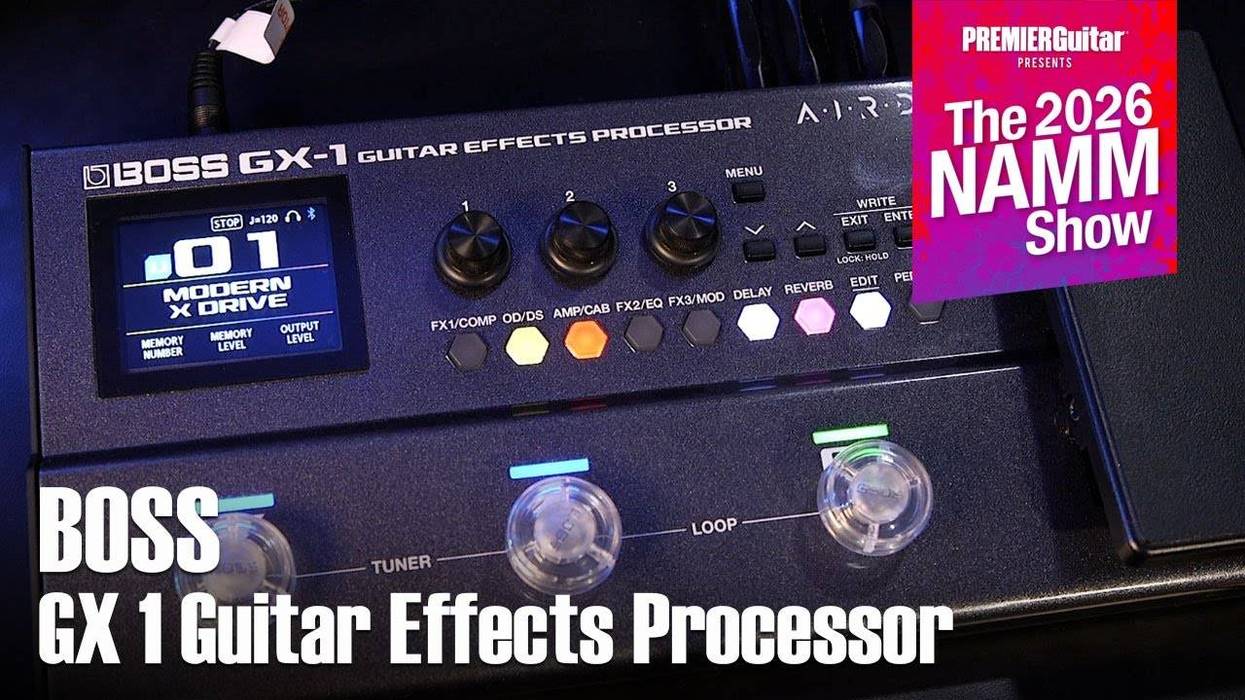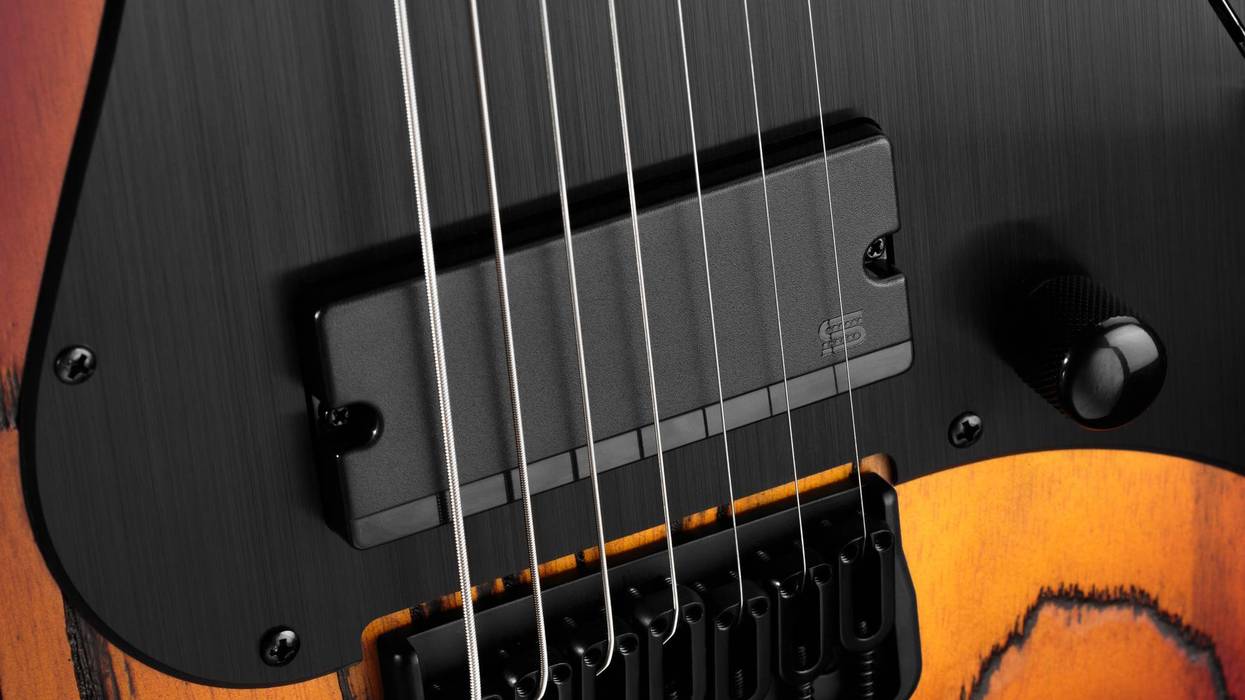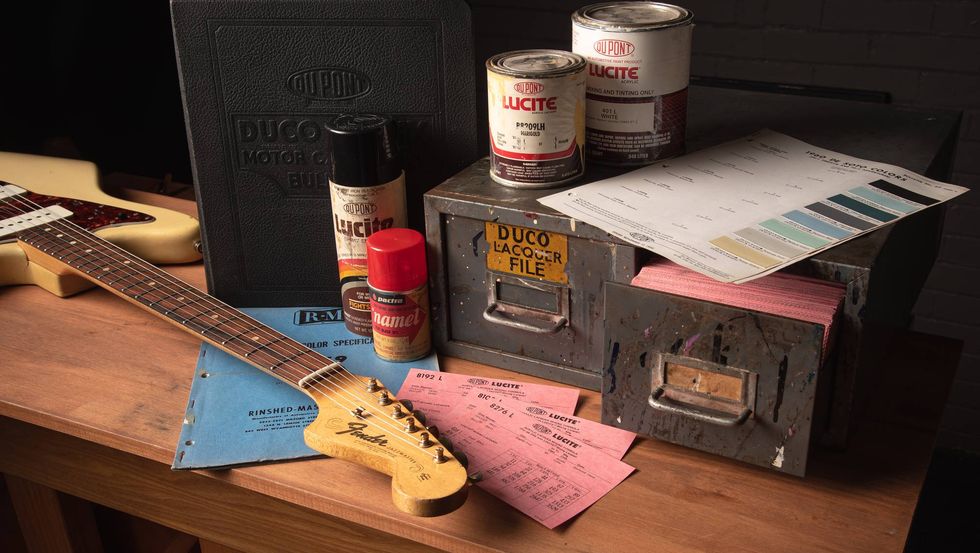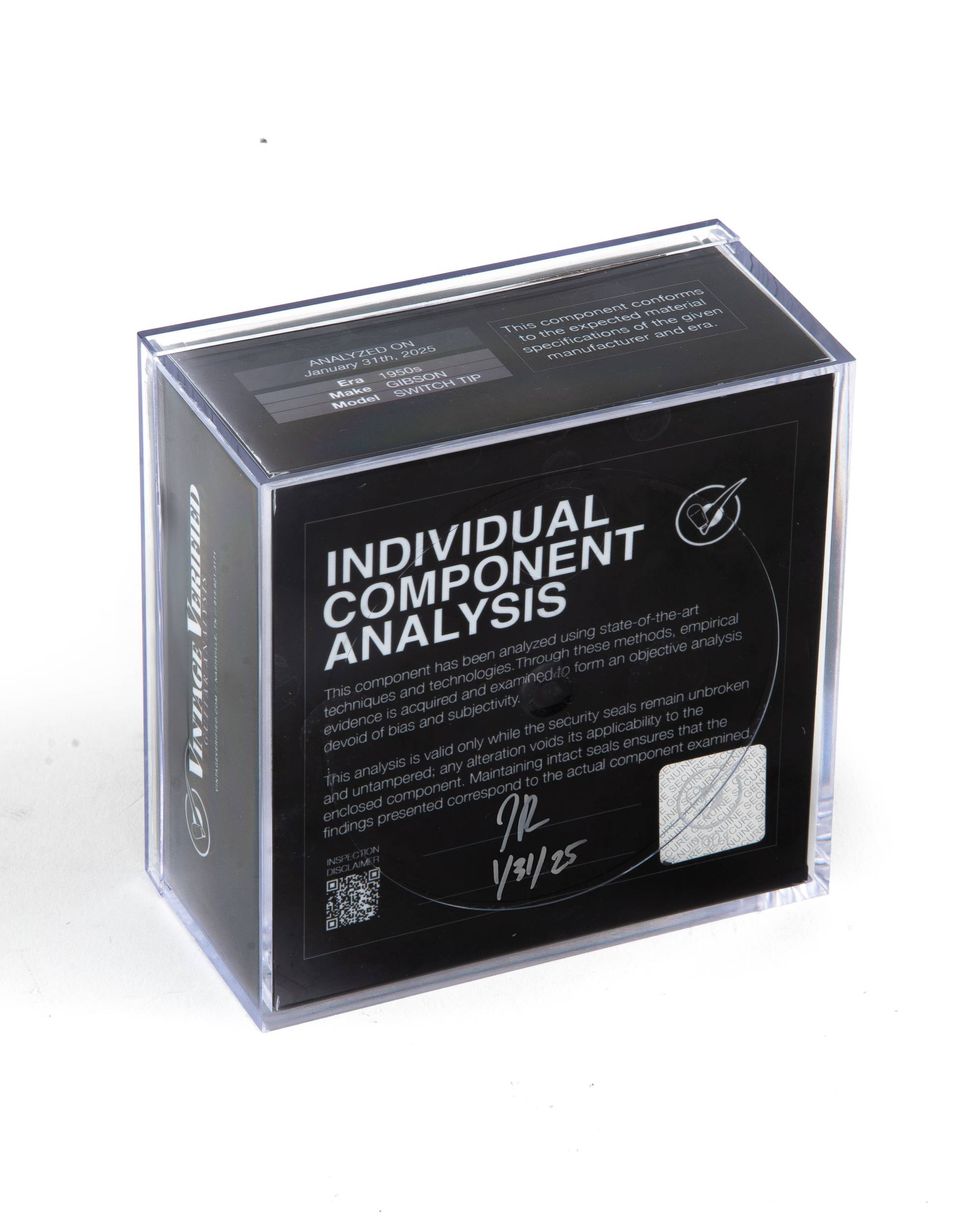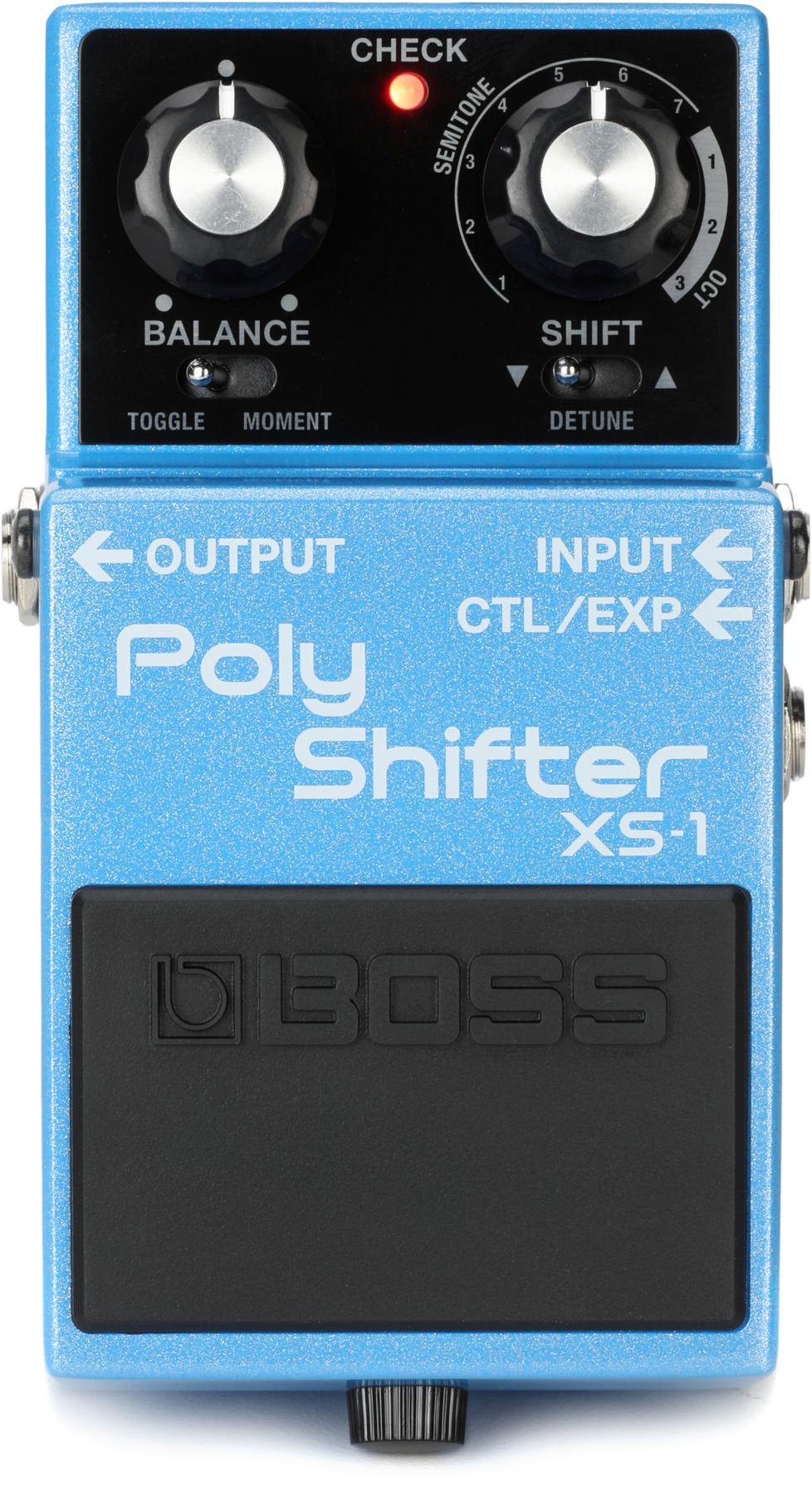Since taking flight in 1997, Reverend Guitars has garnered a reputation as a player’s company. With a lineup of instruments that include signature models of artists like country picker Pete Anderson, jazz/blues virtuoso Gil Parris, and avant rocker Reeves Gabrels, Reverend has always focused more on functionality than flash. At NAMM 2013, the Kingbolt was introduced as part of the company’s Bolt-On series, and it targets a heavy-metal/hard-rock market that the company has never really explored. Like most Reverends, though, it’s a solid performer that inhabits a unique place within its target market rather than aping established standard bearers.
Days of Metal Passed
The Korean-made Kingbolt, with its pointy horns and curved bottom, has the aesthetic presence of a “super strat” that got tangled up with a Jazzmaster and a Music Man. The retro-pop-meets-shredder sum of those parts—the like of which we don’t see often—is quirky and eccentric without looking goofy.
The 25.5"-scale Kingbolt features a korina body, a “medium-oval”-profile maple neck with 22 medium-jumbo frets and a 12"-radius fretboard that’s available in maple or rosewood (our test model has the former). Reverend founder Joe Naylor’s expertise as a luthier and his experience in industrial design is evident in some of the Kingbolt’s less-obvious details, like the neck plate—which, in addition to having six screws for added sustain and increased tuning stability, has two smaller screws in the middle so that the plate stays bolted to the back of the body when the neck is removed.
Hardware choices also reveal a keen design eye and emphasis on playability. The Wilkinson WVS50 IIK tremolo features an arm that you simply push in instead of an annoying threaded arm (you can also adjust swing tension), and the Reverend pin-lock tuners makes it very easy to change strings and keep the guitar in tune. Tuning isn’t quite as stable as a more conventional locking-nut-equipped guitar—when I gave the whammy bar a few violent dives and upward yanks, I experienced some perceptible detuning, but it wasn’t too drastic. For folks like me who hate locking-nut tremolos, the pin-lock tuners and 1 21/32" graphite nut are a pretty cool compromise.
In terms of construction, this Reverend delivers in spades. The craftsmanship on the Kingbolt is immaculate—perfectly cut nut slots, properly seated frets, a correctly positioned bridge, and a great out-of-the box factory setup. All checklist items that, sadly, you can’t automatically expect these days. The Kingbolt’s neck is very comfortable whether your proclivities include extended jams based on full barre chords, bluesy lower-register bends, or above-the-12th-fret shredding. The forearm and belly cut definitely add to the comfort factor—after a fairly long rehearsal that traversed many different genres, I never felt a sense of fatigue.
Like a Bolt of Lightning
I tested the Kingbolt through various setups, including a Mesa/Boogie Blue Angel amp and a vintage ProCo Rat pedal. The ceramic Special H bridge and neck pickups, measuring at 13k Ω and 6.5k Ω, respectively, give the Kingbolt the ability to get a modern sound or a slightly vintage vibe. Overdriven, the Kingbolt has an authoritative lead voice that’s thick but clear and articulate—even at very high gain levels. Clean, the Kingbolt sounds confident without possessing an overbearing, in-your-face aggressiveness.
Like other guitars in the Reverend lineup, the Kingbolt’s electronics include a bass-contour knob, which Reverend says can make a humbucker sound like a P-90 or a single-coil. It hollows out the sound and works a little like a coil-splitter except that there isn’t as much volume loss as you’d get with a tapped coil. While an obsessive gear-o-holic might never mistake the Kingbolt for a Stratocaster or a Telecaster in a blindfolded test, there was a moment in the middle of a session where, a few seconds after flicking to the neck pickup, I looked over to double check the pickup configuration. I had the bass contour rolled back and, for a brief second, I thought I was hearing a single-coil. The faux single-coil sound was even more convincing when I played some twangy spaghetti-western-type riffs with the bridge pickup’s tone all the way up and the bass contour all the way off.
Ratings
Pros: Great sounds for almost any style. Flawless build.
Cons: Somewhat pricey for an import.
Tones:
Playability:
Build/Design:
Value:
Street: $1,079
reverendguitars.com
Overall, the Kingbolt is a bright-sounding guitar, and this is especially evident when playing with clean tones. Even after turning the tone knob fully counter-clockwise and keeping the bass contour up all the way, I noted a crispness that you typically don’t experience when you turn the tone knob all the way down. If you’re one of those guys who rolls off your tone to get jazz tones, you might not find the Kingbolt dark enough. On the other hand, your tone won’t turn into mud and you’ll be able to cut through any mix.
The Verdict
Reverend has always been about offering affordability without
sacrificing quality, and like most of their guitars, the Kingbolt’s
price-to-quality ratio is very high. At $1,079, it feels and plays like a
boutique instrument without the custom price tag. And although it’s
marketed as a hot-rod rocker, what makes the Kingbolt especially
appealing is its versatility beyond the world of power chords and
JCM800s. Practically speaking, it could be the one guitar to bring to
gigs where you don’t feel like schlepping multiple instruments. There
isn’t much tonal ground the Kingbolt can’t cover with a few tweaks to
the versatile control set. If you like to just dial up some basic sounds
and be done with it, you’ll find what you need in seconds. However, if
you’re a tinkerer, the Kingbolt offers a gold mine of tonal
possibilities.










